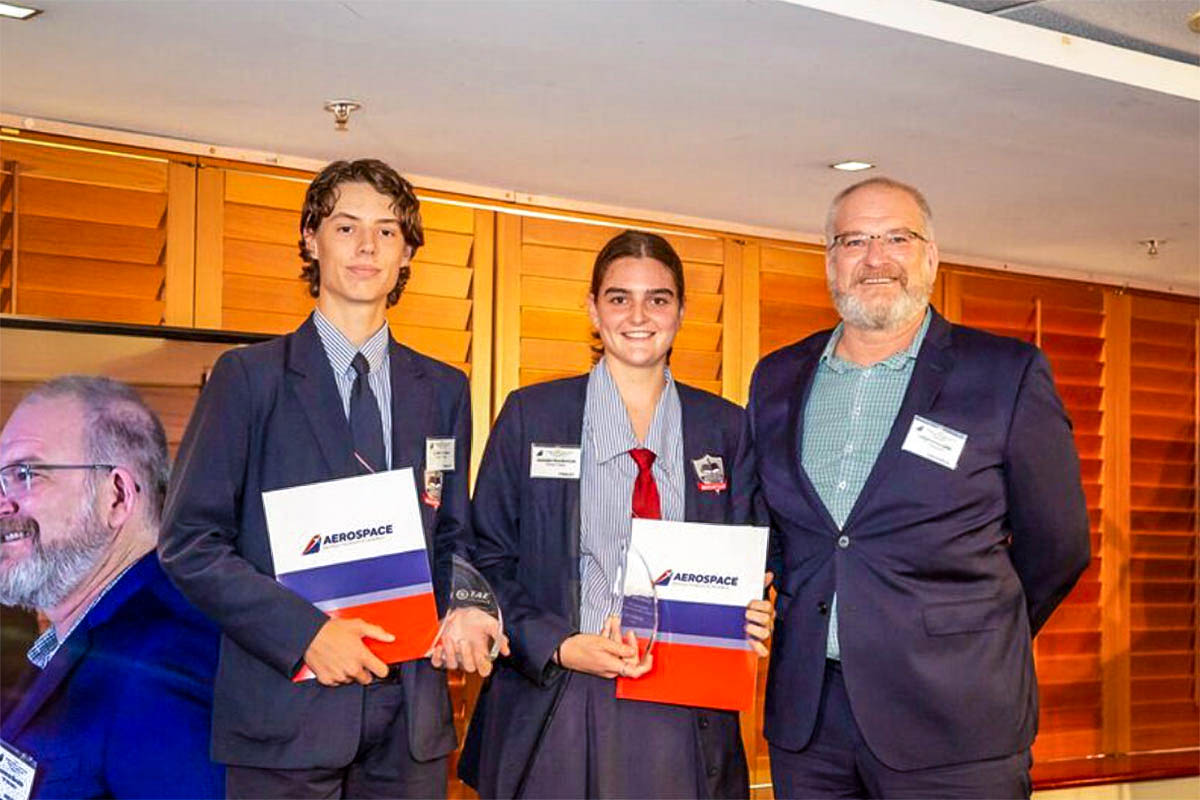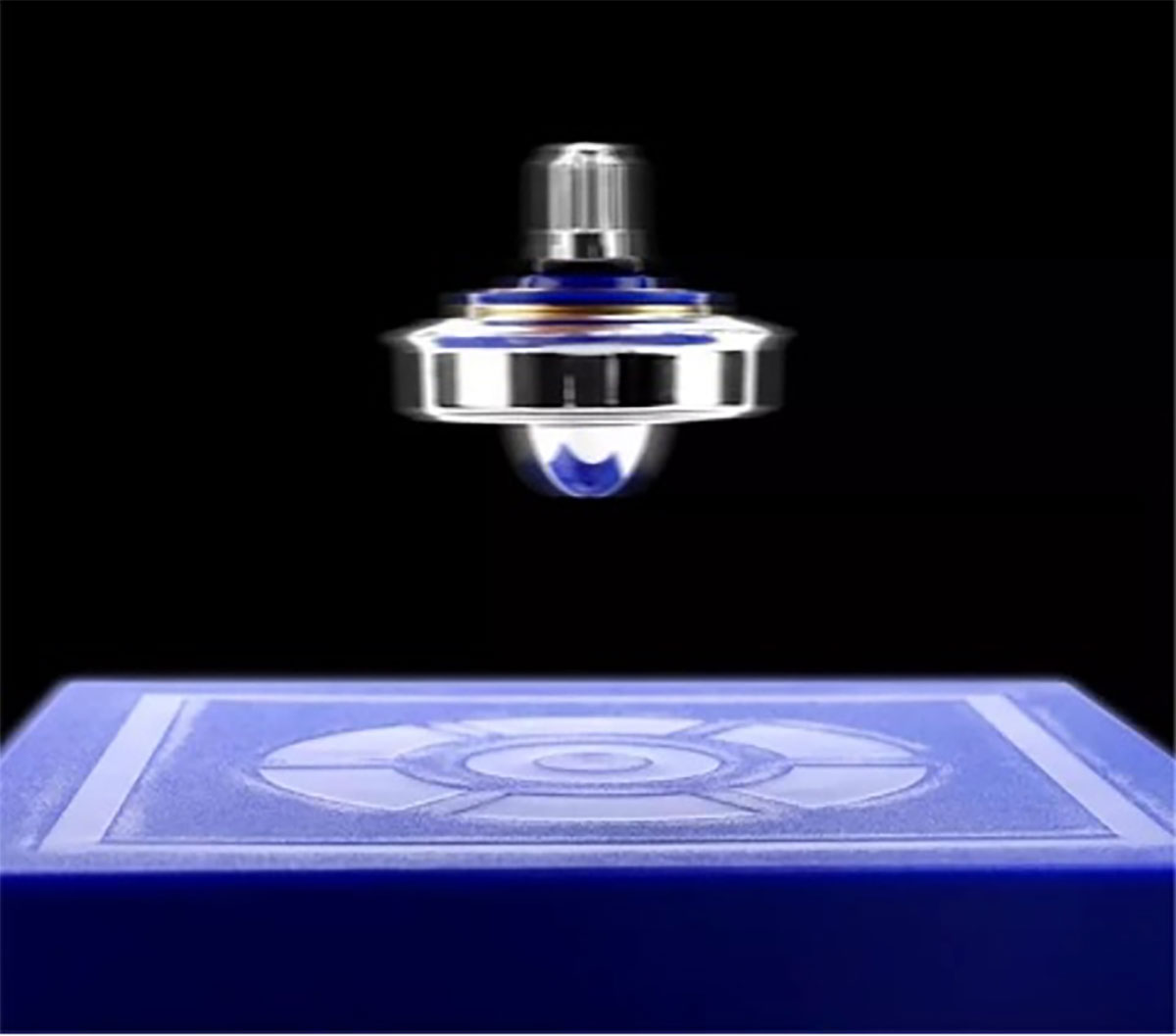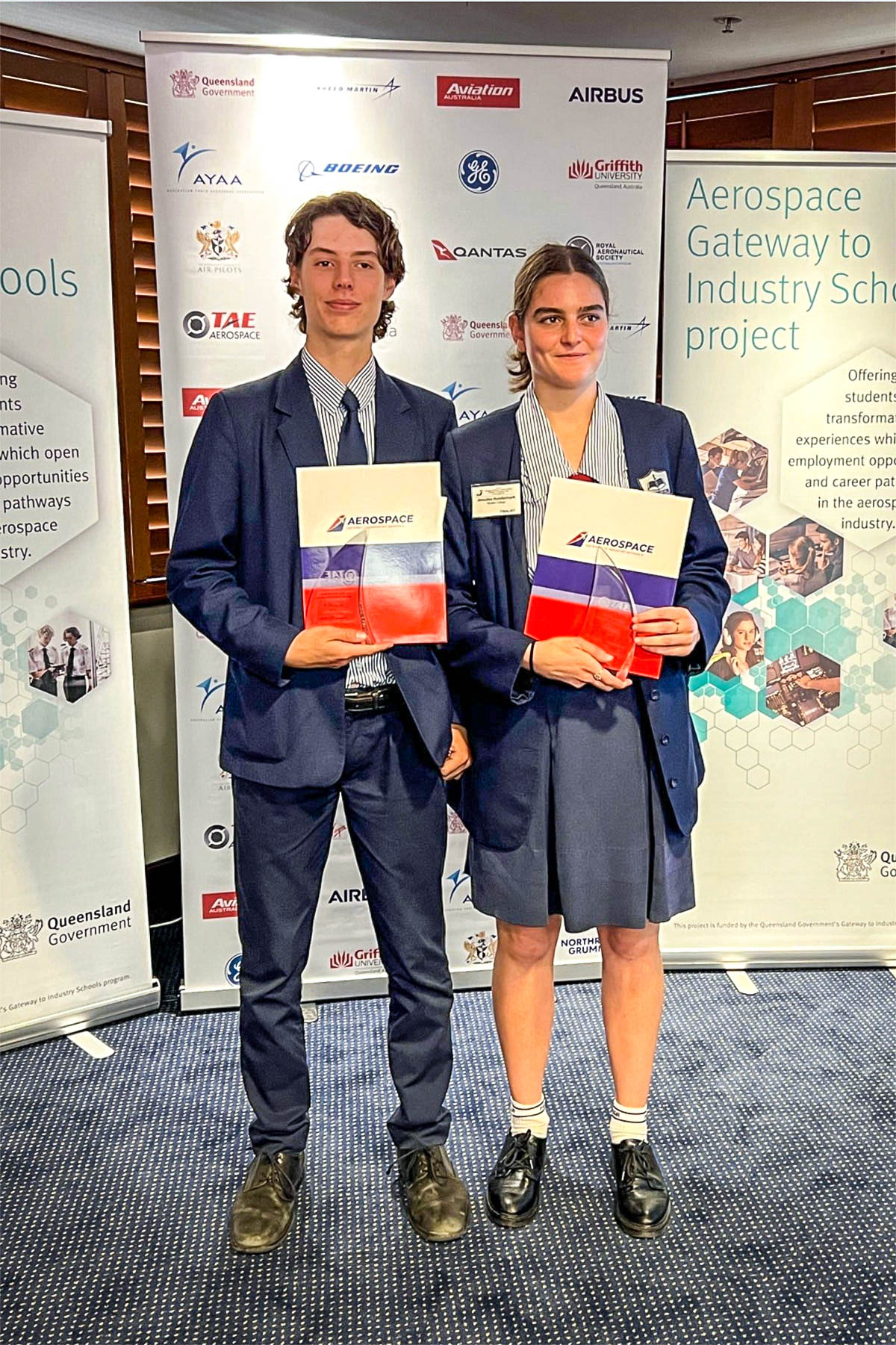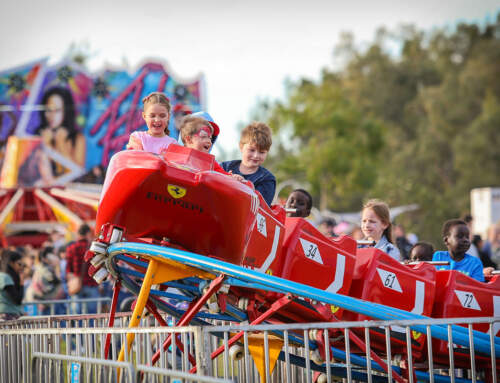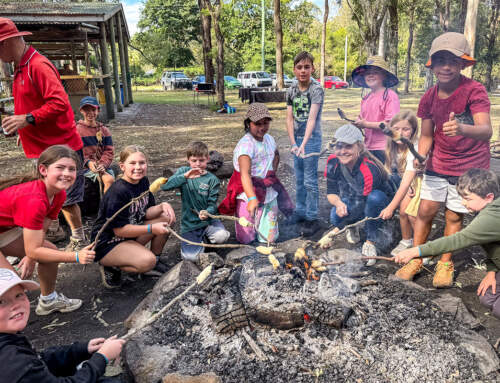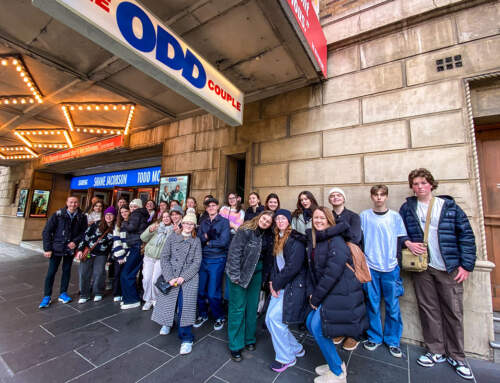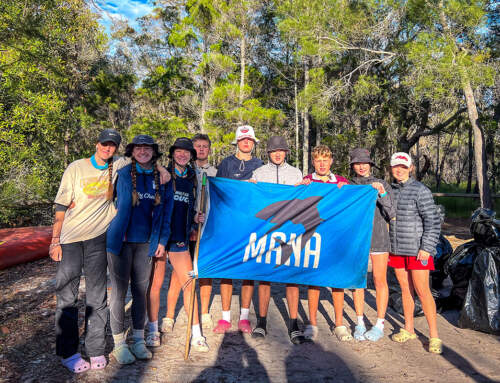In the hubbub of the close of the 2021 school year, two of our aerospace students quietly celebrated the significant achievement of winning the TAE Young Innovator Award at the Aerospace Industry Education Awards.
Four Mueller students were named finalists in the annual awards, an accomplishment in itself, with Jessalee Hundermark and Jayden Richens taking home the prize. Mueller Aerospace teacher, Mr Anthony Banks, said the students had faced a ‘tough field’ to take the win, and the pair were heralded as ‘rising talents in the aerospace industry’ by sponsors TAE Aerospace.
Well done to all the students who entered the awards and a big congratulations to Jessalee and Jayden! We asked them to share a glimpse into the project that brought them the win and think you’ll agree that their fascinating entry deserved the trophy…
‘The TAE Young Innovators Award targeted ‘out of the box’ thinking and sought out an innovative approach to an industry problem. We applied for the award as a team and were fortunate enough to win a finalist spot, attending the awards at parliament house in Brisbane, where we were thrilled to win the overall award (winning $400 and a trophy each). Our approach was to reduce the fuel consumption of modern rockets during their first stage of flight. Did you know that the Saturn V F1 launched using five engines, burning up to 20 tons of fuel per second in its first stage!! A large amount of fuel is used to overcome gravity alone, so we designed an electromagnetic launch system to assist rockets during their first stage of flight.’
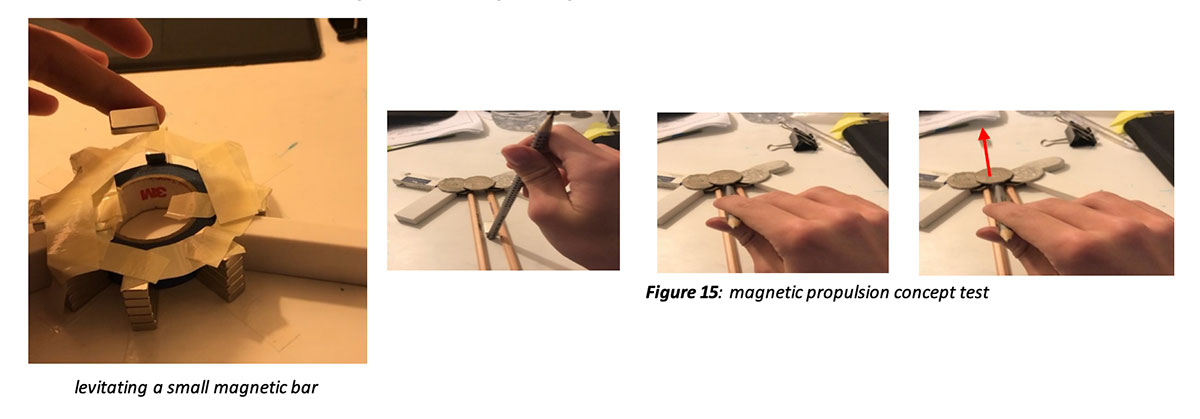
‘The idea came about during an Aerospace assignment. While fidgeting with a few magnets, pencils and some electrical tape, we noticed that a magnet can be projected at a relatively high speed when repelled by a larger number of magnets (or a stringer magnetic field). We decided to expand on this concept, exploring the overall problem, developing and testing ideas, and funnelling down to our one solution. Our conceptual solution used electromagnets to project and/or take gravitational load off the rocket in order to take off using less fuel. The voltage supplied to the electromagnets control the intensity of the magnetic field, making it easier to control, as opposed to permanent magnets. In Jayden’s words, “we made a mega rail gun.”
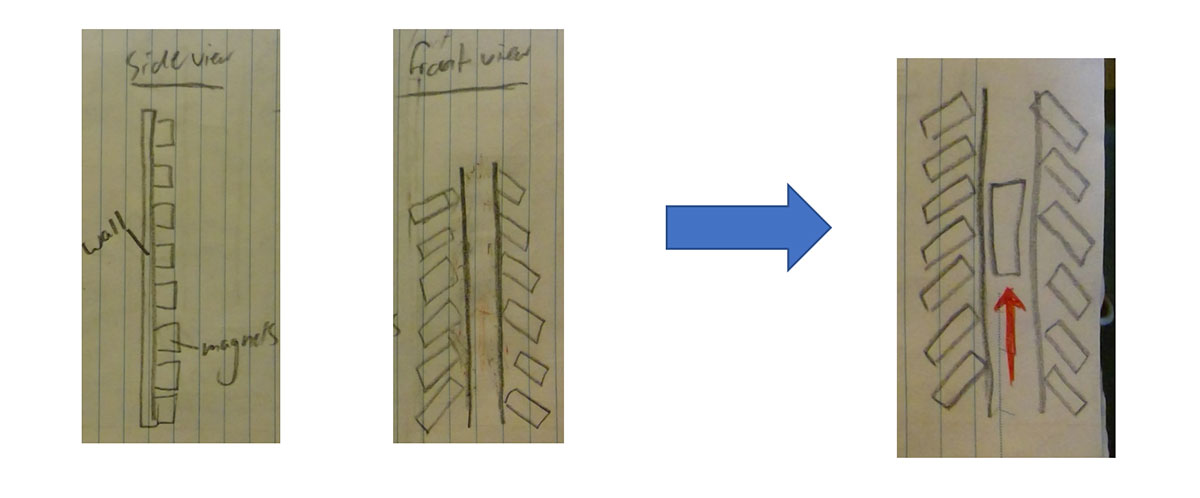
‘Now, you can see that this idea was unrealistic, but by testing our ideas and building on practical examples of our solution, such as the magnetic levitating top, we were able to win the TAE Young Innovators Aerospace award. It is a misconception that you require top marks to win an aerospace award. What is necessary is imagination, patience and perseverance. One of the finalists was in Year 8, not to mention the demographic of the awards is Year 10-12 students. Seeing this Year 8 student having a go even though he was not eligible was truly inspirational as he overcame limitations and presented an incredible project. Although he didn’t win the award, he received an honourable mention and applause. The awards are an excellent opportunity to engage with other imaginative thinkers and participate in stimulating conversations with experts in the Aerospace industry.
We encourage anyone and everyone to apply for an aerospace award, because you might just surprise yourself.’
Jayden Richens and Jessalee Hundermark, Year 12 Aerospace

